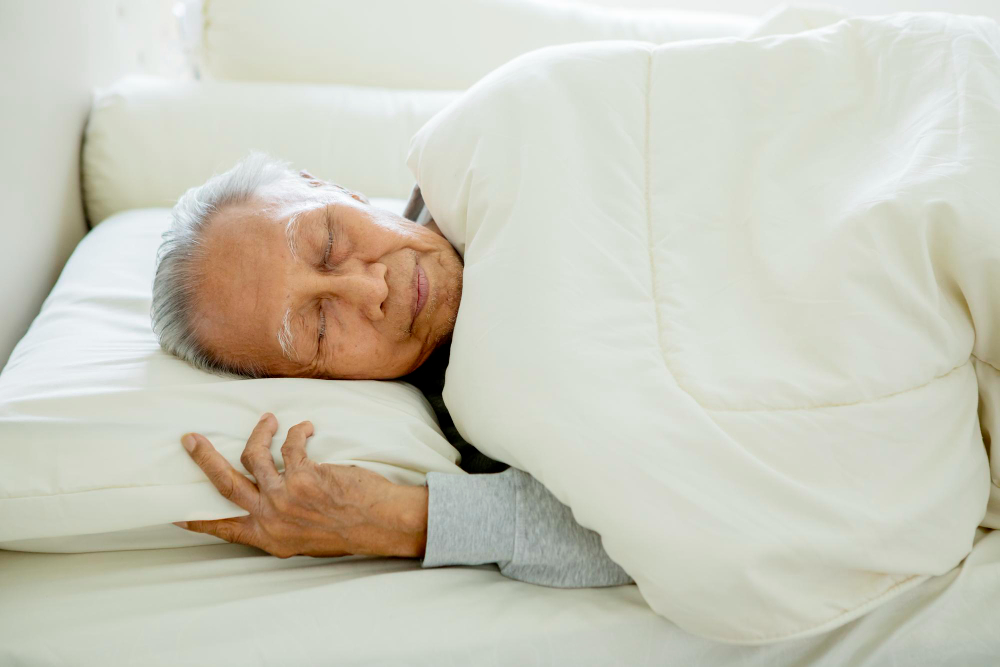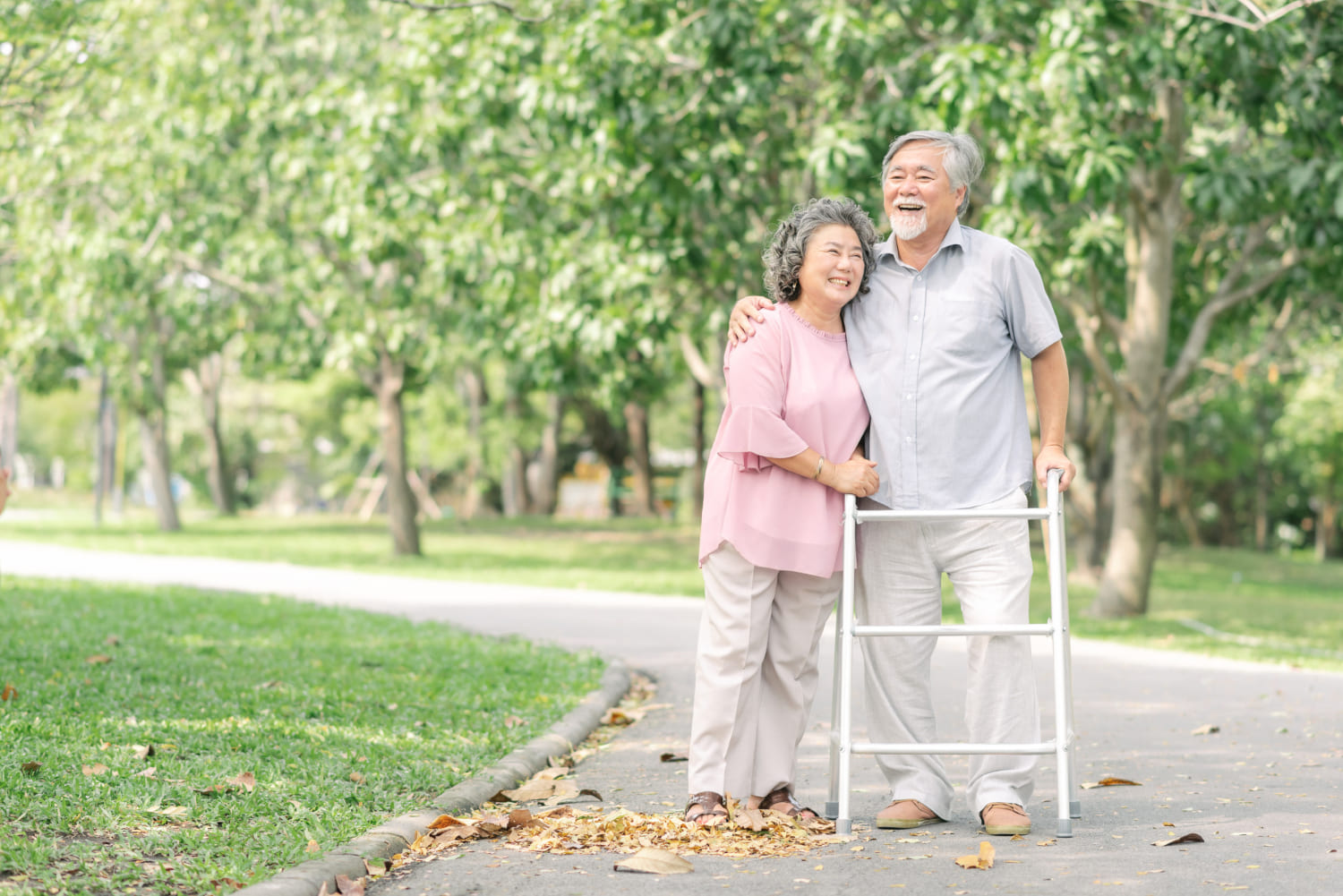As we age, many elderly people experience changes in sleep patterns, including sleeping more often and longer than usual. This often worries family members. For this reason, it is important to know why the elderly sleep more and how to overcome it.
Ideal Sleep Time for the Elderly
In general, older adults need about 7-8 hours of sleep per night. However, this sleep requirement can vary depending on individual health and other factors. In addition to a night's sleep, older adults can also take advantage of short naps to help maintain energy and alertness throughout the day.
Here are general guidelines for ideal sleeping times for older adults based on age:
1. Age 60-70 Years
Entering the age of 60-70 years, the elderly need a sleep duration of 7-8 hours per night. At this age, adequate sleep helps maintain cognitive and physical function. Good sleep also helps reduce the risk of chronic diseases such as diabetes and cardiovascular disease.
2. Age 70-80 Years
Nightly sleep duration is still recommended at 7-8 hours per night, with possible short naps. Seniors in this age range may experience changes in sleep patterns, such as frequent nighttime awakenings. A short nap can help with fatigue without disrupting nighttime sleep.
3. Age 80 and above
Seniors aged 80 and above are still advised to get 7-8 hours of rest per night, with more frequent or longer naps. At this age, sleep patterns tend to be more fragmented, and seniors may need more naps to compensate for the reduced quality of night sleep. It is important to ensure a comfortable sleeping environment and a regular routine.
Causes of Elderly People Sleeping More
There are several reasons why the elderly tend to sleep more. Here are some of them:
Lack of Activity
Seniors who have limited physical and social activities may feel tired more easily and spend more time sleeping. The absence of busy activities can make the body feel weak and sleepy.
Taking multiple medications
Many seniors take a variety of medications to manage their health conditions. Some medications can have side effects that cause drowsiness or excessive fatigue.
Poor Sleep Habits
Poor sleeping habits such as frequent night wakings, insomnia, or poor sleep can make seniors feel the need to sleep longer or more often to compensate for the lack of quality sleep.
Experiencing Stress
Stress or anxiety experienced by the elderly, whether due to health issues, loss of a loved one, or other life changes, can affect their sleep patterns.
Advanced Dementia
In older people with dementia or Alzheimer's disease, changes in sleep patterns are common. They may experience fragmented sleep or sleep longer than usual.
Adverse Effects of Over-sleeping the Elderly
Although sleep is quite important for health, excessive sleep in the elderly can also have several negative impacts:
Brain Disorders
Oversleeping may be associated with cognitive impairment and decreased brain function. This may worsen the condition of dementia or other memory problems.
Increases Risk of Heart Attack
Studies show that sleeping too long can increase the risk of cardiovascular disease, including heart attack and stroke.
Always Tired and Sleepy
Ironically, excessive sleep can make older people feel more tired and sleepy throughout the day. Irregular sleep patterns can also disrupt their circadian rhythm.
Easy Weight Gain
Lack of physical activity due to too much sleep can lead to unhealthy weight gain and worsen other health conditions.
How to deal with an elderly person who sleeps a lot
Managing an elderly person's excessive sleeping patterns requires a comprehensive approach. Here are some steps that can be taken:
Encourage Physical Activity
Encourage the elderly to engage in light physical activities such as walking, gymnastics or yoga. These activities not only improve physical fitness but also help regulate sleep patterns.
Routine Sleep Schedule
Help the elderly to have a consistent sleep schedule. Try to ensure they go to bed and wake up at the same time every day.
Medical Consultation
If medication consumption is the main cause of drowsiness, consult your doctor for possible dosage adjustments or substitution of a more suitable medication.
Create a Comfortable Sleeping Environment
Make sure the bedroom is comfortable and conducive to good sleep. The right temperature, a comfortable mattress, and good lighting can help improve sleep quality.
Reduce Stress
Help older adults manage stress in various ways, such as meditation, talking to loved ones, or therapy. Supporting their emotional well-being is also important for better sleep.
Monitor Sleep Patterns
If there are serious concerns about an elderly person's sleep patterns, consider using a sleep monitor or having an examination at a sleep clinic for a more in-depth analysis.
Managing older adults' sleep patterns requires attention and understanding. With the right approach, we can help them enjoy healthy, quality sleep and improve their overall quality of life.
If there are serious sleep problems, consult a doctor or sleep specialist for appropriate treatment.
By understanding the different sleep needs based on age as well as the reasons why older adults sleep more, we can help older adults achieve quality sleep and improve their overall well-being. (Aq/PRT)









